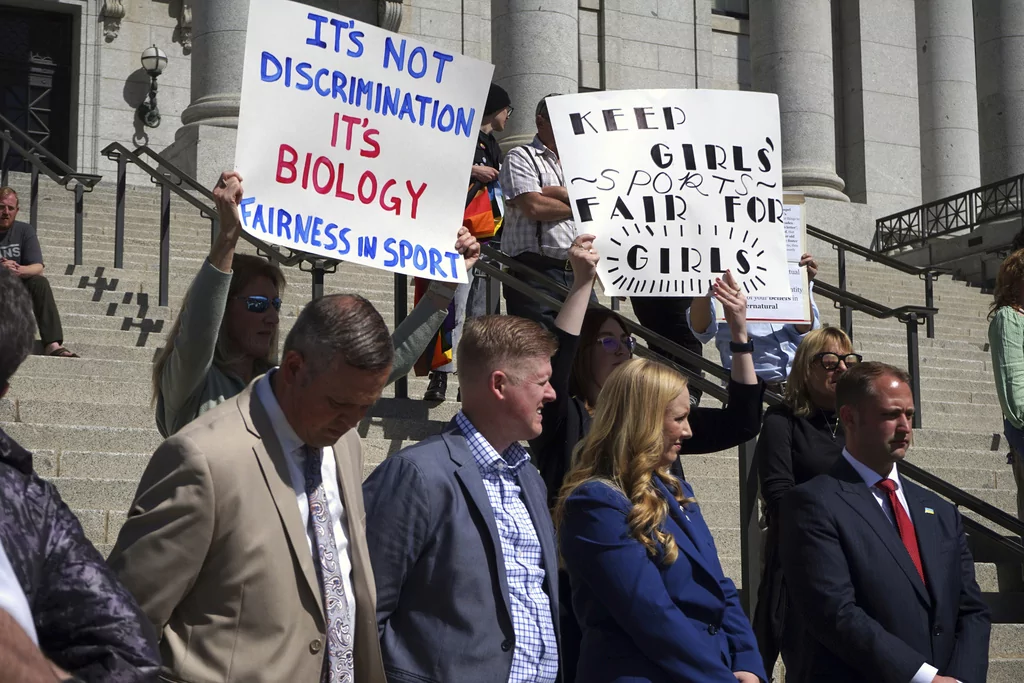

Having withdrawn from his reelection bid and acknowledged the possibility that former President Donald Trump may succeed him, President Joe Biden has worked with Democrats and his federal agencies to lock in a legacy that won’t be easy for Trump to erase. From pumping out regulations to insulating government scientists to enshrining foreign policy commitments, the Biden administration is leaving behind policies that will be procedurally difficult or politically costly to abandon. In this series, the Washington Examiner will take a look at how Biden is Trump-proofing parts of the government. Part two will look at his regulatory push.
Biden will be leaving office in January after bowing out of his reelection bid, but even if his party loses control of the White House, he’s working to cement a legacy that Trump can’t easily undo.
The Biden administration finalized hundreds of regulations this spring, putting them out of reach of a quick repeal should Trump retake the presidency.
Among the regulations Biden is hoping to solidify are environmental measures Republicans have decried as unnecessary and harmful to consumers, efforts to protect the federal workforce that GOPers call the “deep state,” and an attempted rewrite Title IX regulations at colleges across the country.
Schedule F
“We will pass critical reforms making every executive branch employee fireable by the president of the United States,” Trump said in 2022. “The deep state must and will be brought to heel.”
When he says “deep state,” Trump is referring to roughly 2.2 million federal employees who are beyond the reach of the president and thus, according to conservatives, unaccountable to taxpayers. Though Trump said “every” executive branch employee would be fireable if he won, his actual proposal would only affect a small percentage of them.
Trump created an employee classification called Schedule F late in his first term, which would bring about 50,000 “confidential, policy-determining, policy-making or policy-advocating” jobs under the president’s control. Currently, presidents can appoint about 4,000 people in the federal workforce.
Biden removed the Schedule F designation upon taking office, and ultimately, not a single person was fired.
However, to guard against a second Trump term, Biden moved in early April to finalize rules that would put federal government employees behind a regulatory wall that could not easily be torn down.
The Biden administration’s new rule was finalized in April, early enough to escape the Congressional Review Act, which gives Congress a 60-day window to pass resolutions that “disapprove” of an executive branch agency regulation through an expedited process.
Once that window lapses, a future Trump or Republican administration would need to wade through a lengthy notice and comment process in order to reinstitute the rules. Trump has promised to bring back Schedule F on day one, but in reality he may only be able to launch the beginning of a process that could take more than a year to finalize.
“An executive order would not have impact with this regulation in place,” a Biden official told CNN in April. “A future administration would have to go through a new regulatory process, which would also entail like explaining specifically through that rulemaking process why a different rule is better than the existing regulations.”
While Democrats warn that the idea would lead to a government stacked with prevetted “loyalists,” Trump-aligned groups, such as the America First Policy Institute, argue that Schedule F would only affect a small percentage of the federal workforce and restore a state of affairs that existed for nearly 80 years.
“This was how the government operated between 1883 and 1962 under the Pendleton and Lloyd-La Follette Acts,” the AFPI’s James Sherk wrote in a comment backing Schedule F. “The historical evidence refutes [the Office of Personnel Management’s] contention that returning 2% of the civil service to this policy would impair government operations.”
Even so, if Trump is reelected, he will have work ahead of him to bring back Schedule F.
Environmental Regulations
Democrats want to project confidence about the election, but the Biden administration also finalized a host of environmental regulations this spring — in time to keep those too out of the crosshairs of the Congressional Review Act if Trump and a Republican Congress take over in January.
According to the Federal Register, the Biden administration finalized more than 300 regulations in the month of April alone. Back in 2017, Trump managed to repeal 16 regulations that were enacted in the final months of the Obama administration, but he may have a more difficult time doing so with actions taken so long before Biden leaves office.
Some of those new rules impact regulations on power plants, energy efficiency, and use of public lands, and the Biden administration is hoping they’ll stay in place even if there is a second Trump term.
Title IX
One area where the Biden administration’s plan may not be working is its proposed rewrite of Title IX, most of which was finalized in April, in line with Schedule F and environmental regulations.
The Republican-led House has already voted to undo the rewrite, which would change the definition of sex to include transgender identities.
Biden has said he’ll veto any effort to overturn the regulations but has run into trouble on a second front.
CLICK HERE TO READ MORE FROM THE WASHINGTON EXAMINER
A number of courts have blocked portions of the rewrite from going into effect, with a three-judge panel concluding that the rule’s redefinition of sex discrimination exceeds the U.S. Education Department’s authority. Should the rule be blocked through the end of this year, it will be easier for a GOP administration to reverse it — if they manage to win the White House.
Retreating from Biden’s Title IX overhaul could be politically costly for Trump as well. With Biden having extended what proponents describe as anti-discrimination protections to transgender students, any effort by Trump to undo the rule could be perceived as stripping away rights from a vulnerable population.





